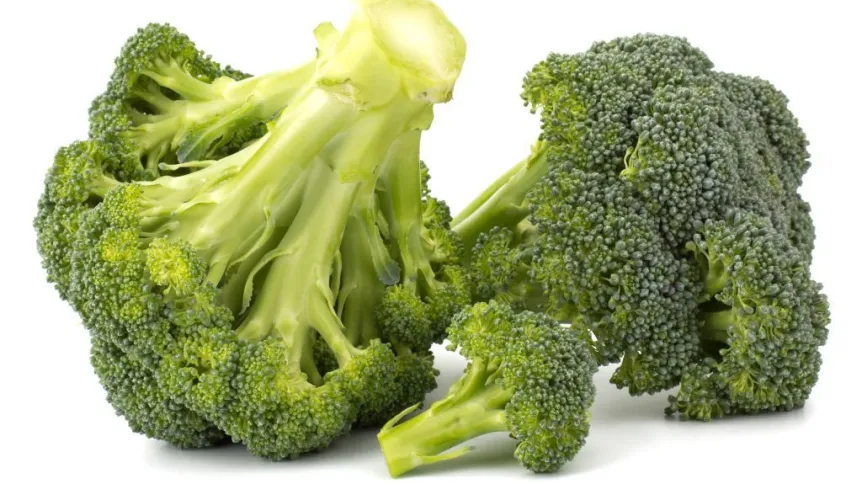
We all know the unpleasant smell when cooking Brussels sprouts, broccoli or cauliflower. Scientists want to find out which chemical compounds contained in cruciferous vegetables are responsible for this specific aroma. For this purpose, they will break them down into "fragrance" and "taste" components, and then boil, freeze and bake.
"According to an increasing number of studies, eating cruciferous vegetables, which include cauliflower, broccoli, Brussels sprouts and kohlrabi, can result in a decrease in the incidence of certain forms of cancer. Cruciferous vegetables owe these properties to products of decomposition of compounds called glucosinolates. It is currently a popular topic, so many scientists look at their properties" - said Prof. Henryk Jeleń from the Faculty of Food Science and Nutrition, University of Life Sciences in Poznań. "However, we are more interested in the role of glucosinolates in shaping the taste and smell of cruciferous vegetables" - he added.
Prof. Jeleń’s team has just received funding from the National Science Centre and in the international project Harmony will investigate which chemicals are responsible for the characteristic odour of cruciferous vegetables. Together with scientists from the Technical University of Munich they will also focus on flavour compounds. "When we cook broccoli, later a specific, unpleasant lingers in the house. Similarly, when we reheat cauliflower. In the 1960s-70s scientists began to suspect that glucosinolates also affect the taste of cruciferous vegetables" - he explained.
Some had associated the presence of glucosinolates with bitter taste. Over time, large discrepancies appeared in the reports, because apart from glucosinolates other chemical compounds may also be responsible for the aroma of cruciferous vegetables. It has been demonstrated, for example, that some compounds in Brussels sprouts have a sweet taste and can mask the bitter taste, so for example bitterness of Brussels sprouts is not as clear.
The situation is similar in the case of aromatic compounds. "What gives the characteristic smell to cruciferous vegetables, are probably sulphur compounds, including those released from glucosinolates. However, overall, there is quite a little research on the compounds responsible for the smell of cruciferous vegetables " - said Prof. Jeleń. "Our goal is therefore to study these compounds and determine their content in the tested varieties of cauliflower, broccoli, Brussels sprouts and kohlrabi, and to examine the changes they undergo in the cooking processes such as cooking, baking or freezing" - described Prof. Jeleń.
Researchers from the University of Life Sciences in Poznań will focus on key fragrant compounds, those that shape the flavour of the product. The products usually associated with strong aroma - such as coffee - can contains a thousand or more volatile compounds. Fortunately, the number of those most important - that shape its flavour - is about 30. Researchers will focus on such compounds in cruciferous vegetables.
What will their work involve? For both the taste and smell, the process is similar. It involves the use of combined methods: chemical analysis - chromatography based mainly on separation techniques and mass spectrometry with identification by the sense of smell and taste. "For the analysis of the aromas of this type we prepare, for example, an extract of broccoli, and we divide the extract into several factions. Later, these fractions are dosed onto the tongue. This way we are able to determine whether a specific fraction has the effect of bitterness or another flavour. After separating this fraction to even smaller parts, we are able to identify the specific compounds responsible for each flavour. The same happens in the case of aromatic compounds, with the difference that instead of tasting - we smell them" - described the scientist.
In each of the four related species of vegetables, scientists estimate that there may be from 10 to 40 compounds determining the aroma. A similar number of compounds may be responsible for their taste.
"If as a result of our joint research with scientists from Germany we can put together the knowledge of the compounds responsible for the smell and the taste, then we will know what causes these unpleasant experiences in the processing of cooking cruciferous vegetables. Sometimes it is just one compound. We will be able to answer the question which compounds change during heating in a microwave oven, and which while boiling. Later, in theory, we can try to prevent this changes in the process of cooking or processing" - he noted.
"Unfortunately we will not come up with a trick that will suddenly make broccoli, Brussels sprouts and cauliflower smell very nice. We are learning the mechanisms that can teach us something about the formation and transformation of flavour compounds - something that later may have consequences in technology" - predicts Prof. Jeleń.
PAP - Science and Scholarship in Poland, Ewelina Krajczyńska
ekr/ agt/ mrt/
tr. RL













